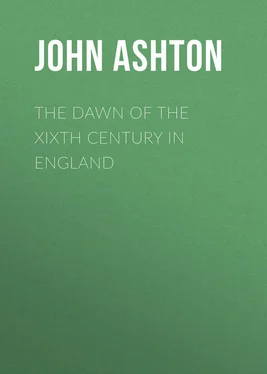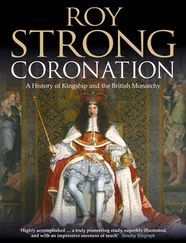John Ashton - The Dawn of the XIXth Century in England
Здесь есть возможность читать онлайн «John Ashton - The Dawn of the XIXth Century in England» — ознакомительный отрывок электронной книги совершенно бесплатно, а после прочтения отрывка купить полную версию. В некоторых случаях можно слушать аудио, скачать через торрент в формате fb2 и присутствует краткое содержание. Жанр: foreign_antique, foreign_prose, на английском языке. Описание произведения, (предисловие) а так же отзывы посетителей доступны на портале библиотеки ЛибКат.
- Название:The Dawn of the XIXth Century in England
- Автор:
- Жанр:
- Год:неизвестен
- ISBN:нет данных
- Рейтинг книги:3 / 5. Голосов: 1
-
Избранное:Добавить в избранное
- Отзывы:
-
Ваша оценка:
- 60
- 1
- 2
- 3
- 4
- 5
The Dawn of the XIXth Century in England: краткое содержание, описание и аннотация
Предлагаем к чтению аннотацию, описание, краткое содержание или предисловие (зависит от того, что написал сам автор книги «The Dawn of the XIXth Century in England»). Если вы не нашли необходимую информацию о книге — напишите в комментариях, мы постараемся отыскать её.
The Dawn of the XIXth Century in England — читать онлайн ознакомительный отрывок
Ниже представлен текст книги, разбитый по страницам. Система сохранения места последней прочитанной страницы, позволяет с удобством читать онлайн бесплатно книгу «The Dawn of the XIXth Century in England», без необходимости каждый раз заново искать на чём Вы остановились. Поставьте закладку, и сможете в любой момент перейти на страницу, на которой закончили чтение.
Интервал:
Закладка:
And, whilst on the subject of Politics, although they have no proper place in this history, as it deals more especially with the social aspect of this portion of the Century, yet it is interesting to be acquainted with the living aspect of some of the politicians of the time, and, thanks to Gillray, they are forthcoming in two of his pictures I have here given.
This is founded on a serio-comic incident which occurred in a debate on Supply, on March 4, 1802. 16 16 “Parliamentary History,” vol. xxxvi. p. 346, &c.
“The report of the Committee of Supply, to whom the Army estimates were referred, being brought up, Mr. Robson proceeded to point out various heads of expenditure, which, he said, were highly improper, such as the barracks, the expenses of corn and hay for the horses of the cavalry, the coals and candles for the men, the expenses of which he contended to be enormous. The sum charged for beer to the troops at the Isle of Wight, he said, was also beyond his comprehension. He maintained that this mode of voting expenditure, by months, was dangerous; the sum, coming thus by driblets, did not strike the imagination in the same manner as they would do, if the whole service of the year came before the public at once, and that the more particularly, as money was raised by Exchequer bills, to be hereafter provided for, instead of bringing out at once the budget of taxes for the year. He alleged that those things were most alarming, and the country was beginning to feel the effects of them. Gentlemen might fence themselves round with majorities; but the time would come when there must be an account given of the public money. The finances of the country were in so desperate a situation, that Government was unable to discharge its bills; for a fact had come within his knowledge, of a bill, accepted by Government, having been dishonoured. (A general exclamation of hear! hear!)
“Mr. Robson, however, stuck to it as a fact, saying that ‘it was true that a banker, a member of that House, did take an acceptance to a public office – the sum was small. The answer at that public office was “that they had not money to pay it.“‘ On being pressed to name the office, he said it was the Sick and Hurt Office.
“Later on in the evening Addington said, ‘I find that the amount of the bill accepted by Government, and non-payment of which was to denote the insolvency of Government, is – £19 7s. Whether or not the bill was paid, remains to be proved; but my information comes from the same source as the hon. member derives his accusation. At all events, the instance of the hon. member of the insolvency of the Government is a bill of £19 7s.’
“Mr. Robson said that was so much the worse, as the bill was in the hands of a poor man who wanted the money.”
In August some riots occurred in Wiltshire, caused by the introduction of machinery into cloth-working. What Hargreaves, Arkwright, and Crompton, had done for the cotton trade, was bound, sooner or later, to be followed by other textile industries. In this case a shearing machine had been introduced into a large factory, some three years back, and, like the silversmiths at Ephesus, the cloth-workers thought that “thus our craft is in danger of being set at nought;” and they did what most poor ignorant men have done under like circumstances, they thought they could retard the march of intellect, by breaking the objectionable machines. Not only so, but, in their senseless folly, they cut, and destroyed, much valuable property in the cloth-racks – altogether the damage done was computed at over £100,000. For this, one man was tried at Gloucester Assizes, and hanged – a fate which seems to have acted as a warning to his brother craftsmen, for there was no repetition of the outrage. In this case, the machinery, being very expensive, could only be introduced into large mills, the owners of which did not discharge a man on its account, and the smaller masters were left to plod on in the old way, in which their soul delighted, and to go quietly to decay, whilst their more go-ahead neighbours were laying the foundation of a business which, in time, supplied the markets of the world. But there was the same opposition to the Spinning Jenny , and we have seen, in our time, the stolid resistance offered by agricultural labourers to every kind of novel machine used in farming, so that we can more pity, than blame, these deluded, and ignorant, cloth-workers, because they were not so far-seeing as the manufacturers.
It was mysteriously whispered about on the evening of the 18th of November, that a plot had been discovered, having for its object the assassination of the King; and next day the news was confirmed – Colonel Despard, of whom I have before spoken (see p. 37), was at the head of this plot. He was an Irishman, and had seen military service in the West Indies, on the Spanish Main, and in the Bay of Honduras, where he acted as Superintendent of the English Colony; but, owing to their complaints, he was recalled, and an inquiry into his conduct was refused. This, no doubt, soured him, and made him disaffected, causing him to espouse the doctrines of the French Revolution. On account of his seditious behaviour, he was arrested under the “Suspension of the Habeas Corpus” Act (1794), and passed some years in prison; and, as we have seen, preferred continuing there, to having a conditional pardon. On his liberation, this misguided man could not keep quiet, but must needs plot, in a most insane manner, not for any good to be done to his country, to redress no grievances, but simply to assassinate the King, forgetting that another was ready to take the place of the slaughtered monarch.
Of course, among a concourse of petty rogues, one was traitor, a discharged sergeant of the Guards; and, in consequence of his revelations to Sir Richard Ford, the chief magistrate at Bow Street, a raid, at night, was made upon the Oakley Arms, Oakley Street, Lambeth (still in existence at No. 72), and there they found Colonel Despard and thirty-two labouring men and soldiers – English, Irish, and Scotch – all of whom they took into custody, and, after being examined for eight hours, the Colonel was committed to the County Gaol, twelve of his companions (six being soldiers) to Tothill Fields Bridewell, and twenty others to the New Prison, Clerkenwell.
Next day he was brought up, heavily ironed, before the Privy Council, and committed to Newgate for trial, the charge against him being, that he administered a secret oath to divers persons, binding them to an active cooperation in the performance of certain treasonable, and murderous, practices. As a matter of history, his fate belongs to the next year, but 1803 was so full of incident that it is better to finish off this pitiful rogue (for he was no patriot) at once.
On the 20th of January, 1803, the Grand Jury brought in a true bill against him and twelve others, on the charge of high treason; and on the 5th of February their trial, by Special Commission, commenced, at the Sessions House, Clerkenwell, before four judges. They were tried on eight counts, the fifth and sixth of which charged them with “intending to lie in wait, and attack the King, and treating of the time, means, and place, for effecting the same;” also “with a conspiracy to attack and seize upon the Bank, Tower, &c., to possess themselves of arms, in order to kill and destroy the soldiers and others, His Majesty’s liege subjects,” &c. The trial lasted until 8 a.m. on the 10th of February, when Despard, who was found guilty on the 8th, and nine others, were sentenced to be hanged, disembowelled, beheaded, and quartered. But the day before they were executed, it was “thought fit to remit part of the sentence, viz., taking out and burning their bowels before their faces, and dividing the bodies into four parts.” They were to be hanged, and afterwards beheaded; and this sentence was fully carried out on Despard, and six of his accomplices, on the 21st of February, 1803.
Читать дальшеИнтервал:
Закладка:
Похожие книги на «The Dawn of the XIXth Century in England»
Представляем Вашему вниманию похожие книги на «The Dawn of the XIXth Century in England» списком для выбора. Мы отобрали схожую по названию и смыслу литературу в надежде предоставить читателям больше вариантов отыскать новые, интересные, ещё непрочитанные произведения.
Обсуждение, отзывы о книге «The Dawn of the XIXth Century in England» и просто собственные мнения читателей. Оставьте ваши комментарии, напишите, что Вы думаете о произведении, его смысле или главных героях. Укажите что конкретно понравилось, а что нет, и почему Вы так считаете.












